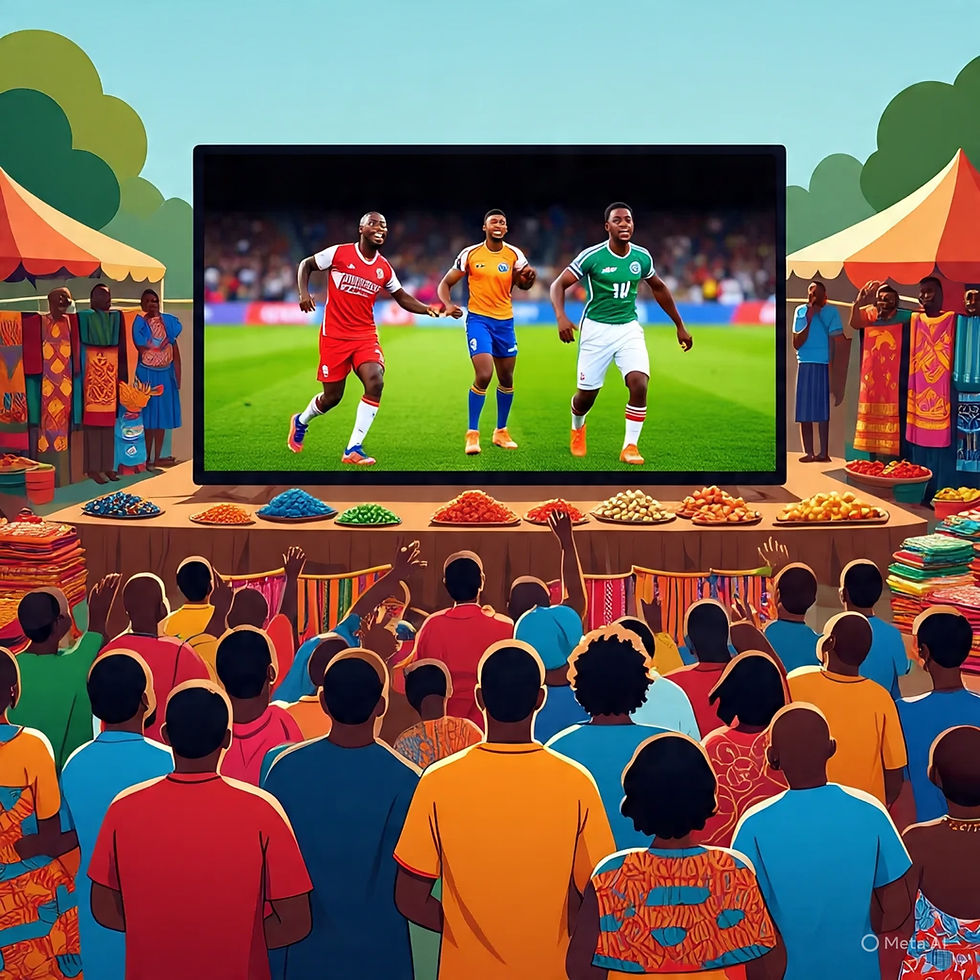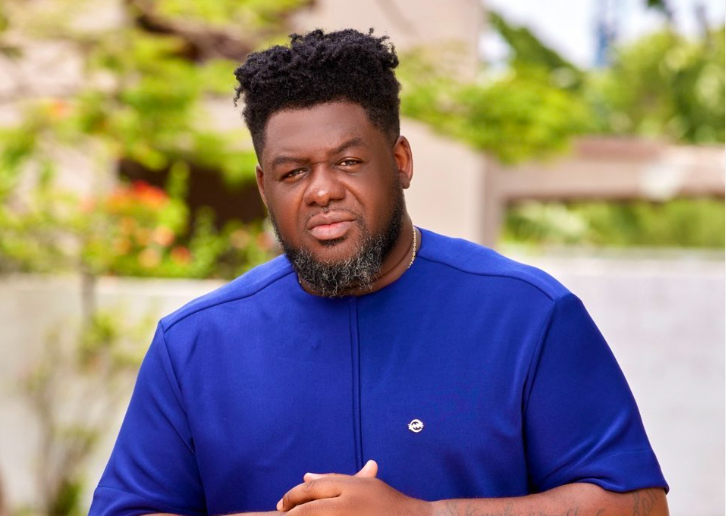The New Music Scene in 2025: Lessons for African Musicians
- orpmarketing
- Jun 17, 2025
- 5 min read
Updated: Jun 18, 2025

The music industry is evolving at breakneck speed, and in 2025, it’s clear that vocal prowess alone doesn’t cut it anymore. Don’t get me wrong—having a killer voice is still a gift. But the spotlight has shifted. Marketing savvy and TikTok influencers are now the secret sauce behind chart-topping hits. For African musicians, this shift is both a challenge and a golden opportunity. Let’s unpack what’s happening, the lessons to learn, how to position yourself, and whether this trend is here to stay.
The TikTok Takeover: Why It’s Running the Show
TikTok has flipped the music industry upside down. It’s not just a platform for dance challenges or funny skits—it’s a global stage where songs live or die based on 15-second clips. In 2025, African artists like Tyla and Kunmie are riding this wave, topping charts because their tracks caught fire on TikTok. Why? The platform’s algorithm loves catchy, bite-sized moments that users can’t resist remixing, sharing, or dancing to. Think of Shallipoppi’s “Elon Musk”—a song that resonated with street culture and exploded globally because TikTok’s algorithm gave it wings.
It’s not just about luck, though. Record labels and artists are strategically partnering with influencers to spark trends. A single viral video can push a song to millions overnight, no radio play or big-budget ad needed. This democratization of fame means African musicians, especially independent ones, can bypass traditional gatekeepers like major labels or radio stations. Gospel artists like Limoblaze have seen this firsthand, with songs like “Favour” blowing up on TikTok without a massive marketing budget.
But here’s the catch: it’s not enough to just make great music. You’ve got to play the TikTok game—create content that’s authentic, engaging, and trend-friendly. And that’s where the lessons for African musicians come in.
Lessons for African Musicians
Master the Art of the SnippetTikTok thrives on short, catchy hooks. African musicians need to craft songs with moments that beg to be looped—think a killer beat drop, a memorable lyric, or a vibe that screams “dance challenge.” Look at how Afrobeats tracks like Omah Lay’s “Moving” or Joeboy’s “Dia Dia” leaned into house music influences to create TikTok-friendly sounds. Write with the platform in mind, but don’t sacrifice your soul. Authenticity still matters.
Collaborate with Influencers, Especially Micro-InfluencersMega-influencers like Charli D’Amelio are great, but micro-influencers (1,000–100,000 followers) are often the real MVPs. They’ve got tight-knit, engaged communities that trust their recommendations. In South Africa, brands are already tapping micro-influencers for hyper-targeted campaigns, and musicians should follow suit. Partner with creators who vibe with your genre—whether it’s Afrobeats, Amapiano, or gospel—and let them weave your music into their content. A dance challenge or lip-sync video can go further than a radio ad.
Engage Directly with FansTikTok isn’t just a promotional tool; it’s a conversation. Artists like Charlie Puth and Russ have used features like Duets to collaborate with fans, turning them into co-creators. African musicians can share behind-the-scenes content, cultural stories, or even open-verse challenges to build a loyal fanbase. This direct connection is gold—fans want to feel like they’re part of your journey.
Leverage Local Sounds and TrendsTikTok loves cultural authenticity. In Kenya, young people are rediscovering Mugithi, a Kikuyu genre, because TikTok gave it a fresh spin. African musicians should lean into traditional sounds—think highlife, soukous, or Afrohouse—and remix them for the platform. It’s not about copying Western trends but showcasing what makes African music unique.
Data is Your FriendUse platforms like Spotify for Artists to track what resonates with your audience. Data can tell you which songs are popping, where your fans are, and what they love. Combine this with TikTok’s analytics to see which videos are driving engagement. This data-driven approach can boost your marketing by 30% if done right.
Positioning Yourself in 2025
To stand out, African musicians need to be strategic. Here’s how to position yourself:
Be a Storyteller, Not Just a Singer Fans crave authenticity. Share your cultural roots, personal struggles, or the story behind your music. Tems and Ayra Starr have nailed this, blending global appeal with Nigerian identity. Post raw, unpolished content—maybe a video of you vibing to your latest track in a Lagos studio or joking with fans in a Nairobi market. It’s about connection, not perfection.
Embrace Cross-Genre Fusion The lines between genres are blurring. In 2025, expect more Afrobeats artists jumping on house or techno tracks, like Asake’s “Active” with Travis Scott. Experiment with sounds that can cross borders while keeping your African essence. This versatility makes your music more TikTok-friendly and globally appealing.
Focus on Sustainability Fans, especially Gen Z, care about values. Artists like Billie Eilish have built loyalty by embracing eco-friendly practices, like sustainable merch. African musicians can do the same—think carbon-neutral tours or merch made from recycled materials. It’s not just good for the planet; it’s good for your brand. Plus, partnering with sustainability influencers on TikTok can amplify your message.
Build a Community, Not Just a Following TikTok’s strength is its community vibe. Use features like Stitches or hashtags to create a movement around your music. Invite fans to remix your tracks or join challenges. This fan-led approach turns listeners into advocates, like how Burna Boy’s fans pushed “Bundle by Bundle” to new heights.
Is This Trend Sustainable?
Here’s the million-dollar question: will this TikTok-driven, influencer-heavy music scene last? Honestly, it’s a mixed bag. On one hand, TikTok’s influence is undeniable. With over a billion active users, it’s reshaped how music is discovered and consumed. Songs like Fleetwood Mac’s “Dreams” or Celine Dion’s “It’s All Coming Back to Me Now” prove that TikTok can revive old hits and launch new ones. The platform’s algorithm, which can’t be easily gamed, gives independent artists a fair shot at virality.
But there’s a flip side. The pressure to churn out content can lead to burnout, as artists like Damoyee have shared. Constantly chasing trends can dilute artistic integrity—some musicians, like Halsey, feel forced to prioritize TikTok over their craft. Plus, the platform’s reliance on short attention spans means songs can fade as quickly as they rise. And let’s not forget the drama with Universal Music Group pulling their catalog over compensation disputes—proof that the financial model isn’t perfect.
For African musicians, the trend is sustainable if approached smartly. TikTok’s low barrier to entry means you don’t need a big budget to break through, which is huge for artists in emerging markets. But long-term success requires balance—using TikTok as a launchpad while building a presence on other platforms like Spotify or YouTube. Diversifying revenue streams (merch, live shows, brand deals) is also key, as streaming alone won’t pay the bills.
Final Thoughts
The music scene in 2025 is a wild ride, and African musicians have a front-row seat. TikTok and influencers have changed the game, making marketing just as crucial as talent. By crafting catchy snippets, collaborating with micro-influencers, embracing local sounds, and staying authentic, you can carve out your space in this digital jungle. But don’t put all your eggs in one basket—build a sustainable career by balancing TikTok’s viral power with long-term strategies.
The trend might not last forever, but its impact will. African artists have a chance to tell their stories, share their culture, and reach the world like never before. So, grab your phone, hit record, and let your music spark the next big trend.
What do you think? Are you an African musician navigating this new landscape? Drop a comment below with your thoughts or share this post with someone who needs to hear it!




Comments